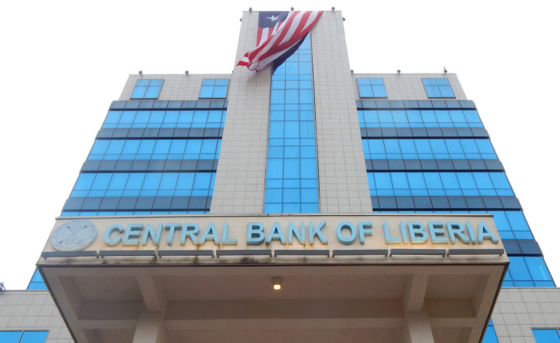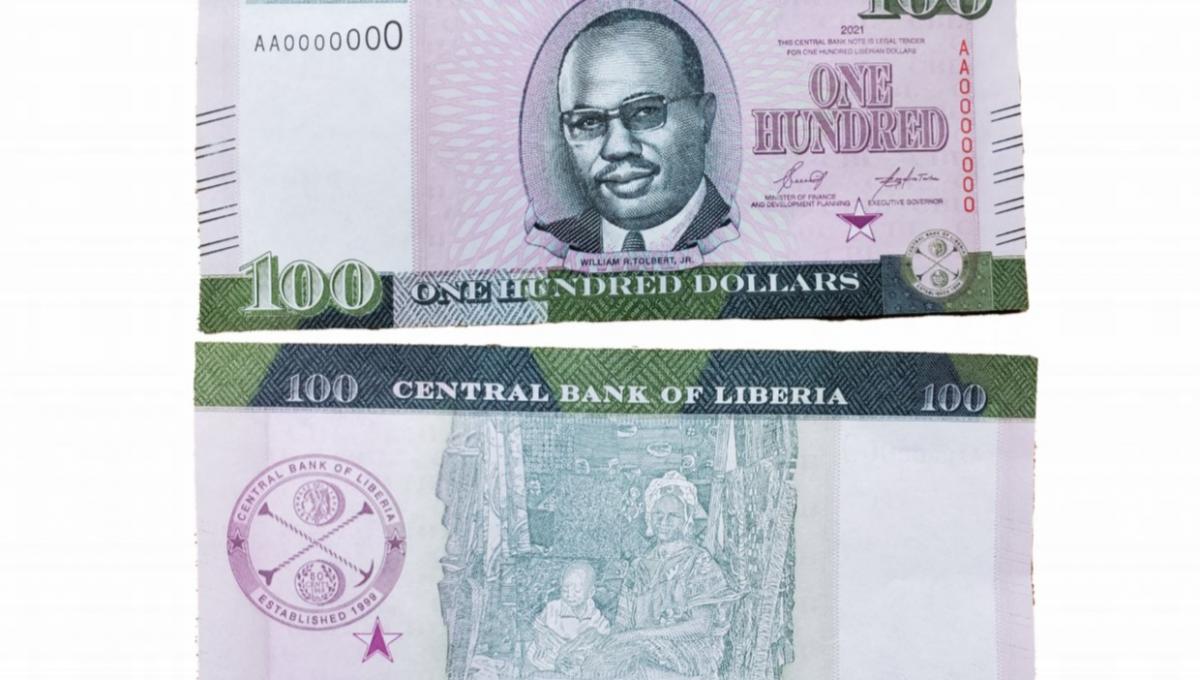Liberia: CBL Creates Awareness on L$100 Banknote

-- Says L$5 and L$10 coins are due to be introduced in 2022
Authorities of the Central Bank of Liberia and the Liberia Media for Democratic Initiatives (LMDI) have hosted a successful launch of a journey to currency reform and a 2021-2024 banknotes change public awareness campaign.
The campaign, which was launched at Nyehn Administrative District Hall in Todee, Montserrado County, began with the introduction of the new Liberian dollar currency starting with L$100 banknote to the tune of four billion Liberian dollars this December 2021.
This amount is intended to increase Liberian dollar liquidity in the economy during the festive season. The launch also attracted several individuals in that area including elders, town chiefs, paramount chiefs as well as community dwellers, among others.
J. Aloysius Tarlue, CBL Executive Governor, told residents of Todee that the new L$100 banknote is part of the L$48.734 billion of the new family of Liberian dollar currency authorized by the 54th National Legislature in May 2021 to be printed and minted in three years, specifically 2021, 2022 and 2024. He further disclosed that the introduction of the new currency will be done in line with the Implementation Plan of the Currency Changeover, developed in consultation with the International Monetary Fund (IMF), to ensure a gradual, smooth and transparent process.
However, Governor Tarlue reiterated that the introduction of the remaining L$100 banknote and other denominations including the L$20, L$50, L$500, and L$1000 banknotes, and the L$5 and L$10 coins are due to take place in the latter half of 2022.
He said; “This money here, since 2009 I can say 44 percent of it are not good so the money is reducing, the once that is good is very few and the once that is bad are plenty, then the population is increasing; your doing business and the money is reducing and people are asking where is the money going? So our job is how do we replace it?
“In the last week of November L$, 100 banknotes will be in the country because it will help to solve some of the money shortage in the economy. So as we get the new money out, we will mark the old money so that it can go back in the market.”
The CBL Executive Governor also informed the residents that the destruction of the old banknotes will be done through enhanced internal control and a transparent process, to ensure full accountability to all stakeholders.
He said doing the process, the Bank will inform the public that the existing and new banknotes will be allowed to co-circulate for some time and will ensure that every existing Liberian dollar in circulation is exchanged between 2022 and 2024. The exchange exercise will be done through the banking system in collaboration with other regulated financial service providers under stringent supervision and monitoring of the CBL in keeping with the Joint Resolution of the National Legislature.
Accordingly, Governor Tarlue said the CBL extended gratitude to the Executive, National Legislature, and the public for the support as well as the IMF and Kroll & Associates for their technical assistance and advisory roles, which have significantly contributed to the integrity of the process.
Governor Tarlue further said that as the Bank rolls out the Implementation Plan, it recognizes the importance of all stakeholders in ensuring that the Currency Changeover process remains on course to support financial stability, and by extension, macroeconomic stability.
For his part, Internal Affairs Minister Varney Sirleaf, who spoke on local government and people ownership of general currency reform and 2021-2024 banknotes change, lauded the CBL family for including traditional people in the reform process of the changeover currency.
Minister Sirleaf also encouraged residents in the town to serve as ambassadors for the process, which he said will help a lot of people to know the importance of the new family banknotes. Besides the question and answer session, remarks were made by Montserrado County Superintendent, Florence Brandy, and Mr. Thomas Goba, who also represented Chief Zahn-Zahn Kawah, traditional chief of Liberia, among others.

